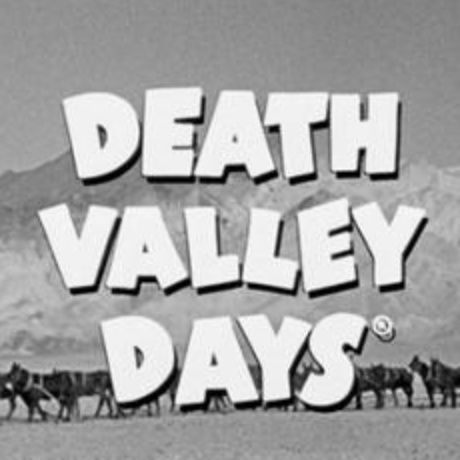
Contacts
Info
In the annals of American storytelling, there lies a radio program that stands as a monument to the rugged individualism and frontier spirit that forged the West. "Death Valley Days,"...
show more
In the annals of American storytelling, there lies a radio program that stands as a monument to the rugged individualism and frontier spirit that forged the West. "Death Valley Days," an anthology that swept across the airwaves like a tumbleweed, was as much a part of the American landscape as the crimson hues of a desert sunset.Each episode was a mosaic, pieced together with the grit of miners, the dreams of pioneers, and the lawlessness of boomtowns. It wasn’t just a show; it was a tribute to the indomitable will of men and women who shaped the craggy face of the American West.Listeners would tune in, transported by the magic of radio to the scorching sands and lonely canyons of Death Valley. The tales were steeped in truth, a history lesson delivered with the crackle of authenticity that only radio could provide. These stories were the echoes of pickaxes in abandoned mines, the whispers of ghost towns, and the laughter in saloons that vanished into the dust of history."Death Valley Days" brought the Old West into the living rooms of the New West, the America that had traded wagon wheels for radio dials. And yet, the spirit remained unbridled. It was here, amidst the cacti and coyotes, that America remembered its past and the echoes of boots and spurs that still rang, long after the radio was silent. Charles Kuralt would have recognized the beauty in its simplicity, the truth in its tales, and the vastness of the landscape it conjured in the imagination of its listeners, every bit as expansive as the skies above the storied valley itself.
show less

Transcribed
5 NOV 2023 · The Burro That Had No Name is a radio episode of Death Valley Days, which aired on June 17, 1938. The show was hosted by Andrew Rhynes, and the episode was written by Ruth Woodman.
Death Valley Days episode poster called The Burro That Had No Name
The episode tells the story of a wild burro who is captured by a prospector. The prospector names the burro "Baldy," and the two of them become inseparable companions. They travel together through the desert, and Baldy helps the prospector find gold.One day, the prospector is injured in an accident. He is unable to walk, and he is stranded in the desert. Baldy stays with him and finds water and food for him. The prospector eventually recovers, and he returns to civilization with Baldy by his side.The episode is a heartwarming story about the friendship between a man and a burro. It is a reminder of the loyalty and companionship that animals can provide.The episode is also notable for its use of sound effects. The sounds of the desert, the burro's braying, and the prospector's voice all help to create a realistic and immersive experience for the listener.
Transcribed
5 NOV 2023 · "Sam Bass" was one of the many episodes of the "Death Valley Days" radio program. "Death Valley Days" was known for dramatizing true stories of the old American West, particularly the Death Valley area. The show was initially created in 1930 and had a long run due to its popularity.Sam Bass was an infamous American outlaw who is best known for his train and bank robberies in the late 1870s. The "Sam Bass" episode would have recounted one or more of his notorious escapades, dramatizing his life for listeners and offering a glimpse into the wild days of outlaws and the relentless pursuit by lawmen.
In the annals of American storytelling, there lies a radio program that stands as a monument to the rugged individualism and frontier spirit that forged the West. "Death Valley Days,"...
show more
In the annals of American storytelling, there lies a radio program that stands as a monument to the rugged individualism and frontier spirit that forged the West. "Death Valley Days," an anthology that swept across the airwaves like a tumbleweed, was as much a part of the American landscape as the crimson hues of a desert sunset.Each episode was a mosaic, pieced together with the grit of miners, the dreams of pioneers, and the lawlessness of boomtowns. It wasn’t just a show; it was a tribute to the indomitable will of men and women who shaped the craggy face of the American West.Listeners would tune in, transported by the magic of radio to the scorching sands and lonely canyons of Death Valley. The tales were steeped in truth, a history lesson delivered with the crackle of authenticity that only radio could provide. These stories were the echoes of pickaxes in abandoned mines, the whispers of ghost towns, and the laughter in saloons that vanished into the dust of history."Death Valley Days" brought the Old West into the living rooms of the New West, the America that had traded wagon wheels for radio dials. And yet, the spirit remained unbridled. It was here, amidst the cacti and coyotes, that America remembered its past and the echoes of boots and spurs that still rang, long after the radio was silent. Charles Kuralt would have recognized the beauty in its simplicity, the truth in its tales, and the vastness of the landscape it conjured in the imagination of its listeners, every bit as expansive as the skies above the storied valley itself.
show less
Information
| Author | QP-2 |
| Organization | William Corbin |
| Categories | Performing Arts |
| Website | - |
| corboo@mac.com |
Copyright 2024 - Spreaker Inc. an iHeartMedia Company
